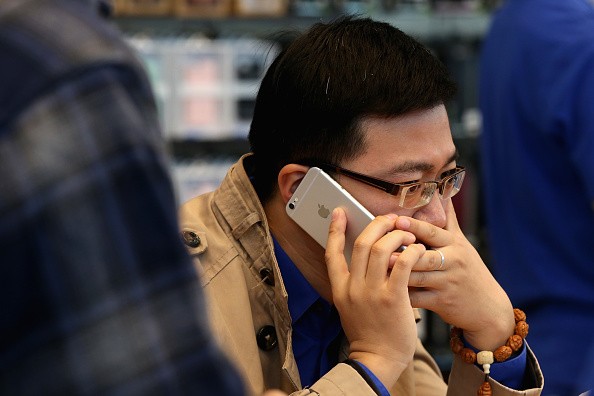Not long ago, Apple viewed China as the land of unlimited prospects, but the situation has undergone a sea change with the regulators in the world's second largest economy has delivered a series of setbacks to the world's most valuable company.
Earlier this year, Chinese regulators shut down Apple's iTunes and iBooks Stores in the country. Now, regulators in Beijing have banned the sale of iPhone 6 and iPhone 6 Plus in the capital city after a little known Chinese start-up, Shenzhen Baili, won a patent suit against the Cupertino tech giant's flagship smartphones.
Apparently, the regulators shut down iTunes for including a controversial Hong Kong movie that was earlier banned in mainland China owing to its political content. According to China watchers, the present Communist regime does not want the Western companies to have any influence on the citizens, who may turn against the rulers' interest.
The latest ruling against iPhone 6 and iPhone 6 Plus is considered to be an indication of the increasing challenges faced by Western companies in China, as the local manufacturers are developing into stronger competitors. Moreover, the regulators are progressively insisting that all foreign companies abide by Beijing's rules, the Wall Street Journal reported.
While many companies from the United States with operations in China have been targeted for various reasons, Apple has remained one of the favorite brands in China. For long, the seemed to be immune from the scrutiny cracked down on manufacturers of highly sensitive apparatus, including servers and routers.
In fact, several industry watchers recollect the aptitude of the Cupertino tech titan to market mobile content in China, while other foreign firms failed. According to many, this was perhaps the love of the Chinese officials for the iPhones. However, things began to change with President Xi Jinping introducing stricter rules for technology and content sale in the country.
Currently, Chinese manufacturers are gradually learning to advantage of a developing domestic patent system by claiming patents even if they did not develop the broader technology first, The Australian quoted Erick Robinson, the Rouse China law firm chief patent counsel for Asia Pacific, as saying.
According to Robinson, even today it is rare for Chinese firms to file patent suits against Western companies and be successful. While Shenzhen Baili has been successful in this venture, the patent counsel is of the view that more such instances will occur in the near future.
The recent patent ruling against Apple is the biggest challenge faced by the company in China, which has remained its second largest market outside the United States. The sales of iPhones witnessed rapid growth in China for several years, but it dropped drastically in the first quarter of 2016 ended March 26, resulting in a decline in the company's first quarterly revenue in 13 years.
Watch Apple patent being challenged in China below:



























